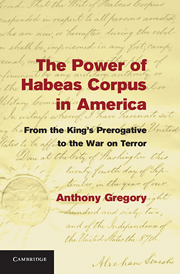In the wake of the embarrassing Shiite uprising and Fallujah catastrophe, George W. Bush said at his April 13 press conference that the United States must use “decisive force” in Iraq, and yet he also maintained his promise to hand over power on June 30, as initially planned by the Coalition Provisional Authority and the Iraqi Governing Council.
This might seem like a bit of a contradiction—with Bush intensifying his war rhetoric, yet staying committed to the handover plan. There is no irony, however, because the “handover” plan does not involve the United States pulling out. About 100,000 U.S. troops will remain in Iraq after the so-called handover, and the coalition will still assert its influence from the U.S. embassy.
Those Americans who want the United States to pull out of Iraq completely—including many who supported the war but see no point in staying there now—have little to look forward to. With such a large U.S. military presence in Iraq and with such strong ties to the Iraqi governing council, Americans will continue to be targets of a swelling anti-U.S. resentment and violent insurgency. The huge cost to American taxpayers for maintaining a neo-imperialist satellite in Mesopotamia will definitely continue. And with the coalition and governing council not even preparing to have elections before or shortly after the handover date, the Iraqi people will probably feel as powerless over the new governing regime as they do now under U.S. occupation and did under Saddam’s rule.
Thus, the growing solidarity between Shiites and Sunnis in their opposition to what they see as U.S. hegemony will likely continue, and the hatred against the United States in the Middle East, which breeds terrorists, will flourish. Just as the number of Americans who have died after Bush triumphantly stood in front of the now-famous “Mission Accomplished” banner exceeds by several times the U.S. death count of 140 before the war “ended,” the number of American fatalities after the Iraqi handover may make the current death toll seem like a drop in the bucket.
The Bush Administration has no intention of allowing the kind of Iraqi self-rule and self-determination invoked by the president in his speeches over the last year and a half. The fear is that pulling out may prove that the Iraq experiment was a failure, as the country descends into chaos and war. But even after Richard Nixon lost more than twenty thousand troops in his incremental attempts at “Vietnamization,” the United States eventually pulled out only to see South Vietnam fall to communism anyway. Some folks, nostalgic for the Cold War, say that if the United States had pressed on, it could have defeated the Viet Cong. Few Americans, though, believe that the sacrifice of another fifty thousand of America’s young would have been worth victory over the communists in that single arena, considering that Communist Vietnam ended up posing no real threat to America.
Vietnamization took years and was messy, and “Iraqization”—a term one might imagine invoked by our verbally inventive president—will also be far from a quick and clean process. Remembering the body-bags from the futile last years of Vietnam, few Americans today want to see tens of thousands of their sons and daughters die in an Iraqization scheme that will almost certainly fail to free Iraq from the kind of brutal oppression or chaotic war that constitute the norm, and not the exception, to life in the Middle East and much of the world.
And yet, President Bush has not lost his resolve to send more troops to Iraq, his lip service to Iraqi sovereignty notwithstanding. In the end, short of bringing the troops home, there is little hope in stopping the carnage in Iraq emerging from a conflict between a grumbling occupying force of American soldiers, who want to come home, and a resentful occupied Iraqi population who would likewise prefer to see their occupiers leave.
As time goes on, and many more Americans continue to die in Iraq for reasons that increasingly seem unpersuasive to the public, the troops will come home. The only question that remains is how long this war, which now only survives by its own inertia, will continue to consume human lives. The United States can cut its losses now or we can maintain a war with no clear and just purpose, no victory in sight, and no realistic chance of reducing terrorism or bringing freedom to Iraq.
The “Iraqization” Scam
Anthony Gregory is a former Research Fellow at the Independent Institute and author of American Surveillance.
Comments
Before posting, please read our Comment Policy.








